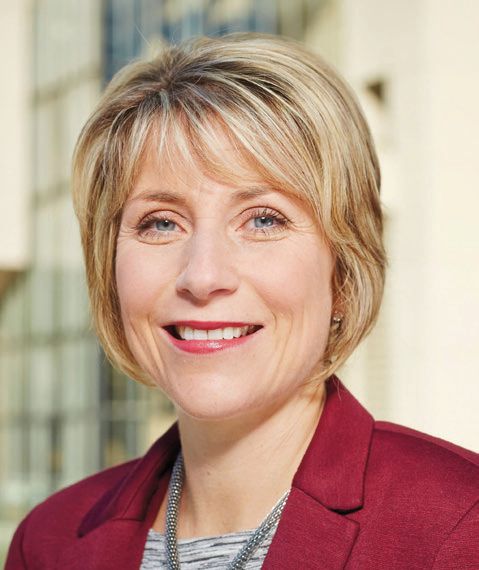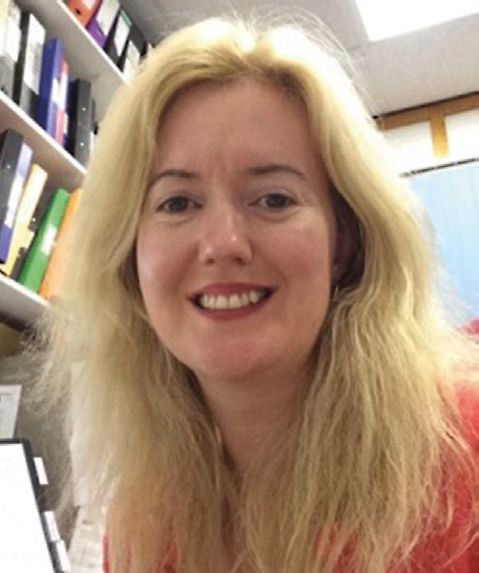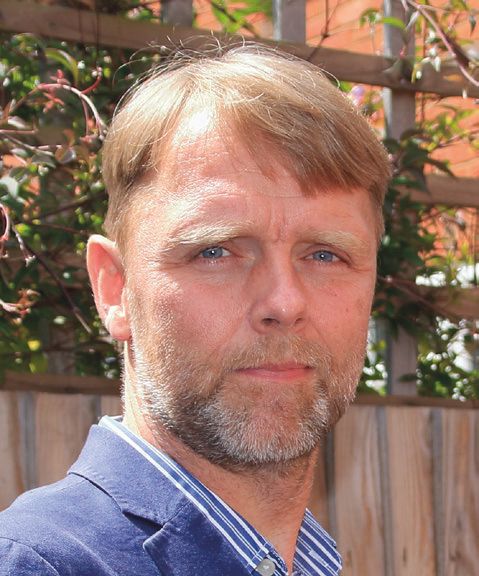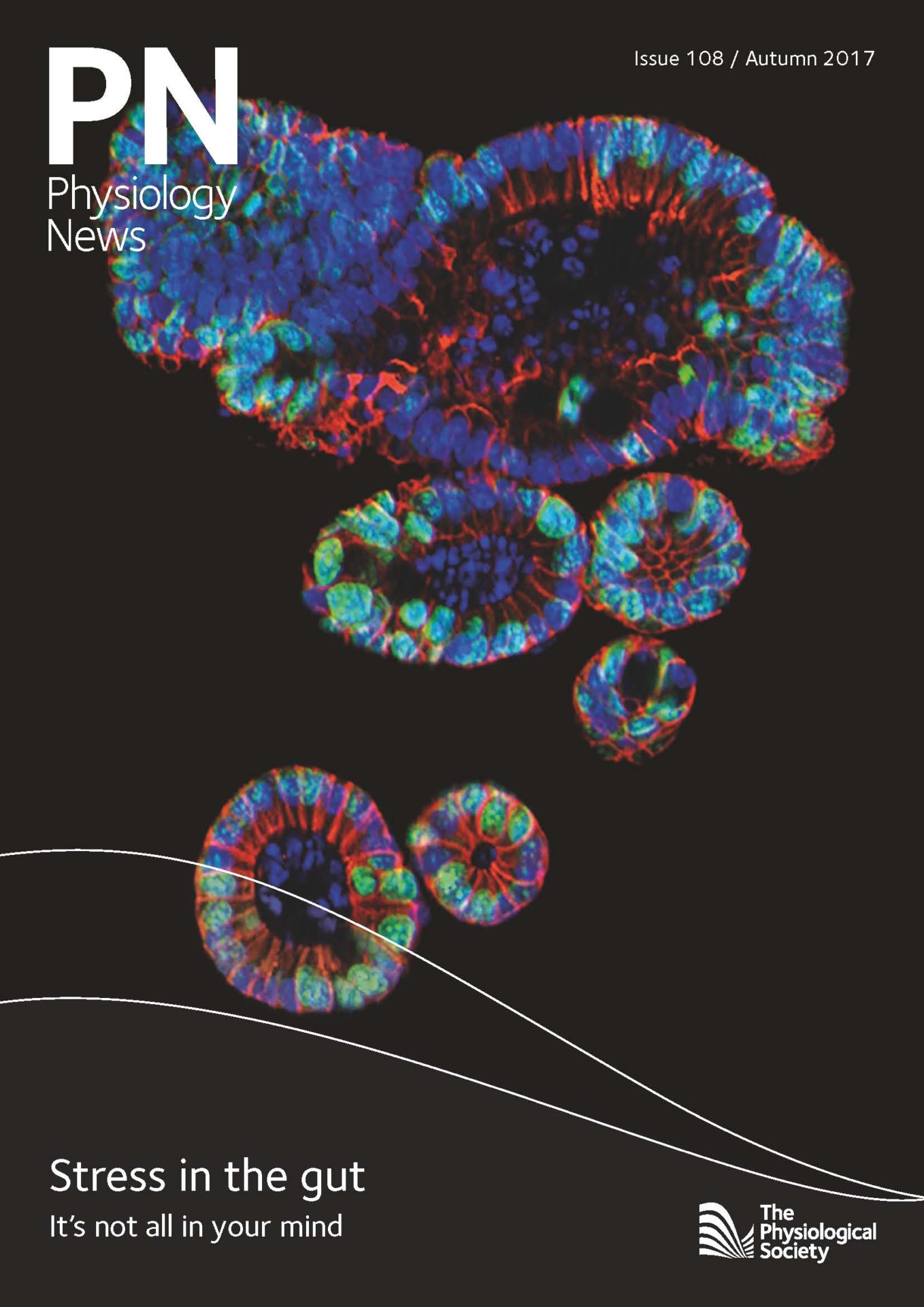
Physiology News Magazine
Meet the newest members of your Council
Membership
Meet the newest members of your Council
Membership
https://doi.org/10.36866/pn.108.42
Charlotte Haigh
University of Leeds, UK
I am sure, as for most people, the fascination of the human body, its complexities both in health and disease, is what inspired me to become a physiologist. I started my academic career studying a BSc in Biochemistry and Physiology at the University of Sheffield; this is where I became curious about biological systems at a molecular level but always had the bigger picture of how this affected the whole body in the back of my mind. This led me to study for a PhD in Molecular Endocrinology at the University of Birmingham where my project was based around the role of transforming growth factor beta in acute and chronic diabetic nephropathy. The project allowed me to work with both basic scientists as well as clinicians from the UK, Canada, and Denmark. I really enjoyed the research and applied for a postdoctoral research position back in Sheffield working on the localisation and expression of the Na+/H+ exchanger in the collecting duct in the kidney, then turning my attention to the isolation and localisation of K+ channels in the proximal tubule.
During my time as a postdoc, I had the opportunity to teach some undergraduate students and took physiology into schools. Whilst gaining the skills and experience in doing this, I could see that inspiring the younger generation was really something that I valued and would shape the direction of my career.
I moved to the University of Leeds as a teaching and scholarship academic where I have been for over 13 years now. This started with teaching, within the School of Biomedical Sciences, many areas of physiology including endocrinology, gastrointestinal physiology, physiology of reproduction and fertility, and cardiovascular and respiratory physiology at all undergraduate levels. I was admissions tutor for over six years. I continued to indulge my passion for outreach and public engagement managing to secure a Wellcome Trust Public Engagement Grant entitled ‘The Physiology and Pharmacology of Sporting Success’. This led me to understand the value of engaged research in much more detail and to work with senior leaders of the University to create a Public Engagement team, of which I am now academic lead, championing the benefits of public engagement with research and facilitating opportunities and ideas for the whole University!
As a trustee, I want to be part of shaping the future of The Physiological Society as it develops and establishes the new five-year strategy. I feel that I currently contribute in many ways to the charitable objectives of The Society, especially with my work around public engagement with research. I feel my knowledge, expertise, and network of colleagues in this area could contribute widely in the implementation of the new strategy. I feel my strengths in supporting The Society and being able to contribute as a Society Trustee are in the areas of education and public engagement with research, which complement The Society’s objective of supporting research to advance the understanding of physiology and disease, as well as education and public engagement to develop an informed society. I look forward to being a Trustee and getting involved with the work of The Society.

Elizabeth Sheader
University of Manchester, UK
From an early age I had always wanted to know how the human body works. I loved human biology and was fascinated by how cells work together to contribute to tissue function and how this function is impaired in the diseased state. In sixth form, I was fortunate enough to gain some work experience in a physiology research lab here in Manchester. It was then I realised that human biology was in fact physiology. This experience inspired me to explore the opportunity of studying Physiology at degree level.
I started my academic career at the University of Liverpool, where I studied a BSc (Hons) in physiology. My final year research project was such a positive experience and confirmed my desire to want to do further research. So on completion of my degree, I moved to Manchester to begin my PhD in pancreatic beta cell physiology. I continued to work as a Postdoctoral Research Fellow, where I expanded my knowledge of human physiology by working on projects in renal physiology and cardiac physiology. As a PhD student and postdoc, I was always involved in undergraduate teaching. I really enjoyed working with the students and being on the receiving end of students wanting to know how and why the body functions as it does.
I found (and still find), students enthusiasm for learning infectious. In 2001, I obtained my PGCE for Further and Higher Education from the University of Bolton. I completed this at night school whilst continuing my research career. In 2001, I became a Teaching Focused Lecturer, and now as a Senior Lecturer, I teach physiology to over 1000 students in programmes across our Faculty of Biology, Medicine and Health, including Bioscience, Medical, Dental & Allied Health related disciplines. I use innovative methods in my teaching and aim to improve student engagement in the subject matter. I also hold additional roles in student support and leadership roles as Programme Director for the Physiology programme, academic lead for Year 1 to Medical students and OSCE co-lead for Year 1 on the MB ChB.
I am dedicated to teaching and inspiring learning. I see myself as both a scientist and an educator, who aims to integrate current physiological research with the understanding of basics principles. I am very fortunate to work within a team of dedicated, supportive, and learned colleagues both in my institution and within the wider community of physiologists through The Society. I feel I have a responsibility to promote science through public engagement. This together with undergraduate education is integral to inspiring the next generation of physiologists which will help shape the future of The Society. I feel this role as a Trustee to The Society will enable me to expand my commitment to The Society and help have an input into this future. I feel it is a great privilege to take on this role.

Stefan Trapp
University College London, UK
Discovering how something works has always excited me. At school my first love was physics, but by the time I started university that had changed to the physiology of living beings. Whilst the attraction of neurophysiology is probably obvious to most, I was also captivated by the prowess of archeabacteria in utilising various sources of metabolic energy, and even intrigued by plant physiology. Discussing the role of plant chloride channels was a rather unlikely part of my PhD viva on vagal neurons. Therefore, it is the fascination with mechanisms, physical, chemical, biological, or mechanical, which got me hooked on physiology.
Whilst not lacking confidence, I am indebted to my mentors for persuading me to go for the more ambitious alternatives presented to me during my career. This started with an inspiring neurophysiologist, Professor Reto Weiler, at Oldenburg University in Germany, who sent me to Oxford University to perform experiments for my final undergraduate project and persuaded me to pursue a PhD in Goettingen to learn the patch-clamp technique. This was just as Neher and Sakmann received the Nobel Price for developing this technique. My PhD, part of which was the first description of ATP-sensitive potassium channels in autonomic neurons, led to contacts with Professor Frances Ashcroft, and her invitation to host my German Travel Fellowship. Working with her team of outstanding scientists on structure and function of the newly cloned ATP-sensitive potassium channels was an exhilarating as well as humbling experience; it was Fran who convinced me that I have what it takes to pursue a successful academic career. I then obtained a MRC Career Development Award to start my own laboratory at UCL working on glucosensing circuits in the lower brainstem. Subsequently, I became a lecturer at Imperial College and further consolidated my laboratory’s work on metabolic control circuits. In 2013, I moved back to UCL to join the Department of Neuroscience, Physiology & Pharmacology, where Alexander Gourine and I co-head the Centre for Cardiovascular and Metabolic Neuroscience. We combine classic physiological experimentation with the use of optogenetic and pharmacogenetic approaches to understand the circuitry of metabolic and cardiovascular regulation and its implications for diabetes, obesity, and heart disease.
The Physiological Society has been of great importance and value for my scientific career: by providing a forum to present my data and meet my peers, by offering travel grants to attend overseas meetings, and by hosting symposia that I had proposed. It is tempting to take it for granted that this will be available for the next generation of physiologists, but the fact is that my generation of physiologists now needs to step up and take responsibility. We have to determine where The Physiological Society is heading and define how it best serves the interest of academic physiologists and physiology as a discipline in an ever-changing political and economical landscape. I am ready to play my part to ensure that The Physiological Society continues to be the success it has been for almost 150 years.

